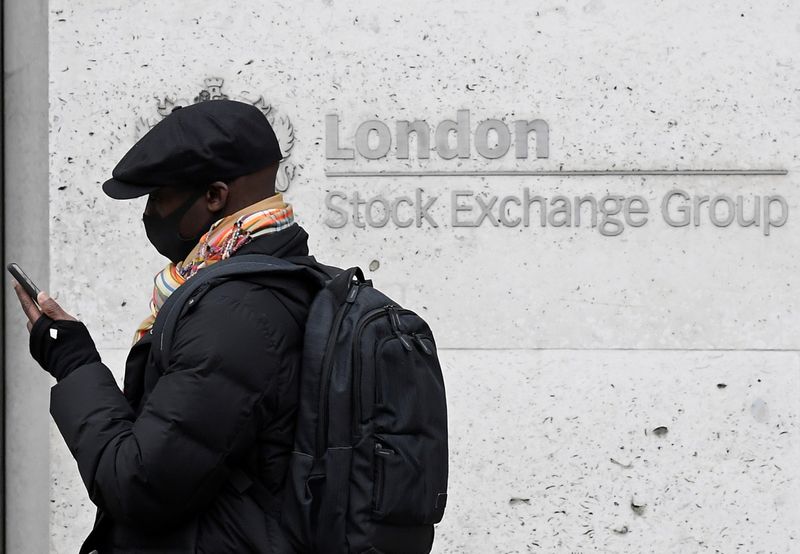Gold prices set for weekly gains on dovish Fed outlook; silver near record high
By Shashwat Chauhan and Shubham Batra
(Reuters) -Britain's FTSE 100 hit a one-week high on Thursday, led by aerospace and defence stocks, while a softer inflation reading in the U.S. and rise in oil prices after OPEC+ countries agreed to output cuts boosted sentiment.
The blue-chip FTSE 100 rose 0.4%, while the midcap index fell 1.3% but managed to build healthy gains in November. The index also had its best month in 2023.
Aerospace and defence stocks led the gains among major FTSE 350 sectors as Rolls-Royce (LON:RR) shares hit an over four-year high, rising 2.1%.
Energy stocks also supported the broader gains as oil prices gained after OPEC+ producers agreed to output cuts approaching 2 million barrels per day (bpd) for early next year. [O/R]
Shares of BP (LON:BP) and Shell (LON:RDSa) rose 1.5% and 0.3%, respectively, contributing to healthy gains for the benchmark index.
Boosting sentiment, the U.S. personal consumption expenditures price index rose 3% in October from a year ago, moderating from a three-month string of 3.4% readings, though still above the Fed's 2% target, bolstering bets of early rate cut.
Among the losers, automobile and parts shares fell 2.4%, logging their worst day in two weeks.
Dr Martens (LON:DOCS) slumped 21.4% after the bootmaker forecast its annual revenue to decline and profit to be below market expectations.
"It's been another bad day for bootmaker Dr Martens shares which have had a dreadful year, starting off badly in January after the company issued a profits warning ... and getting bookmarked today with another profits warning, falling to new record lows today," said Michael Hewson, chief market analyst at CMC Markets UK.
Metro Bank advanced 2.3% after the British lender announced it would be laying off 20% of its staff.
Meanwhile, Bank of England interest rate-setter Megan Greene said interest rates might have to stay high for an extended period and she was more worried about signs that inflation could be persistently high than some data suggesting the economy is in a downturn.
